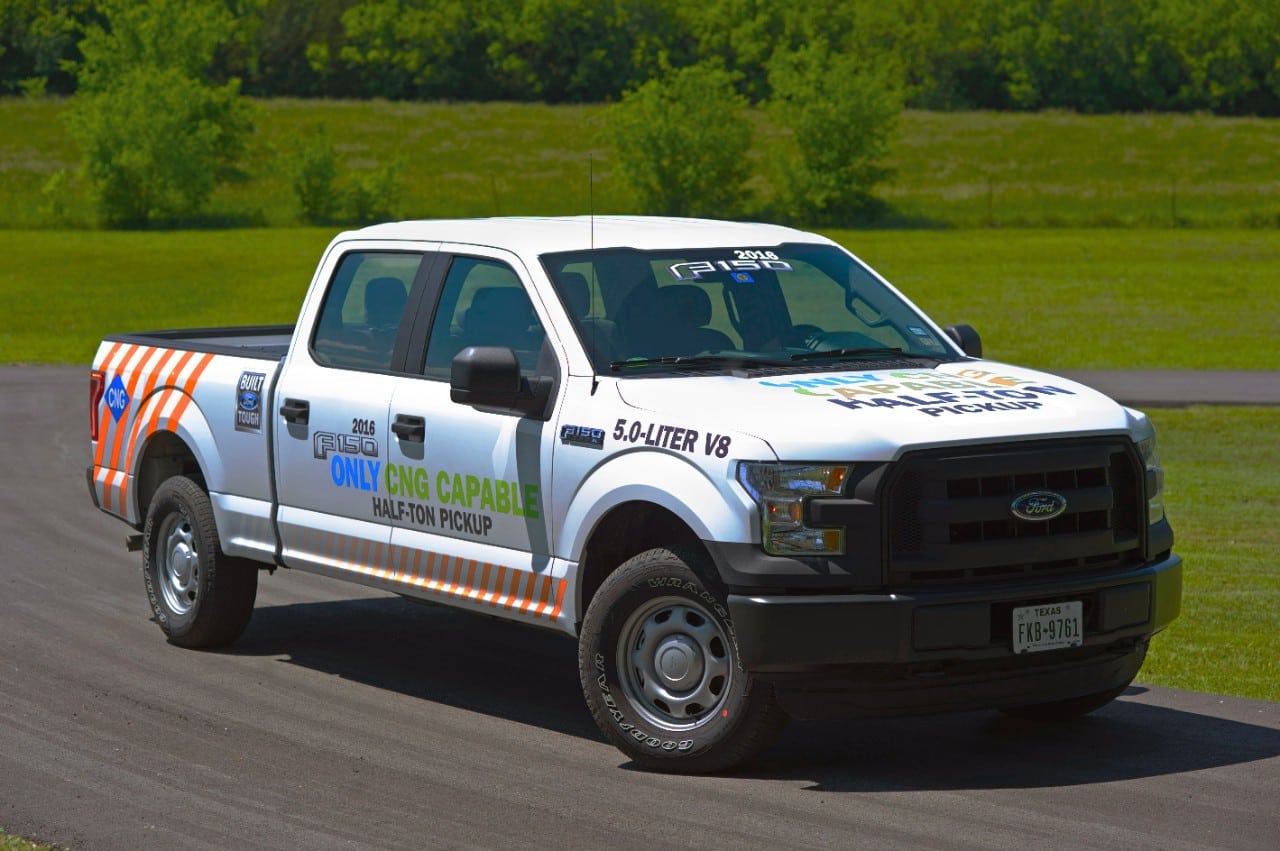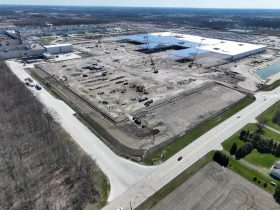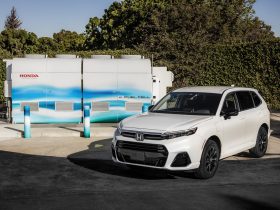Ford says that due to popular demand from consumers, the 2016 Ford F-150 with the 5.0-liter V8 engine will offer a gaseous-fuel preparation option to allow the pickup to be easily converted to compressed natural gas or propane operation. This will make the F-150 the only light-duty pickup truck on the market capable of running on CNG or propane without engine overhaul conversion.
Since 2009, Ford has sold over 57,000 natural gas-powered vehicles around the United States. That is more than all other automakers combined. It’s portfolio of natural gas and propane vehicles include F-series pickups, Transit and Transit Connect commercial vans, and the new Transit Wagon. Most of these conversions are on vehicles that come from Ford as “gaseous ready” and are then converted at Ford Qualified Vehicle Modifiers nationally.
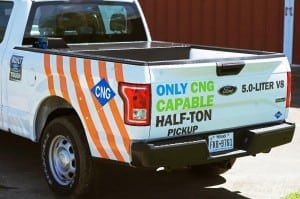 “We surveyed customers likely to use natural gas or propane, and 72 percent told us they want to have these alternative-fuel capabilities available on F-150 with the 5.0-liter V8 engine,” said Jon Coleman, Ford fleet sustainability and technology manager. “We expect the gaseous-fuel prep package will be even more popular than it was on the 2014 F-150 with the 3.7-liter V6 engine, given the capability of the 2016 F-150 5.0-liter V8.”
“We surveyed customers likely to use natural gas or propane, and 72 percent told us they want to have these alternative-fuel capabilities available on F-150 with the 5.0-liter V8 engine,” said Jon Coleman, Ford fleet sustainability and technology manager. “We expect the gaseous-fuel prep package will be even more popular than it was on the 2014 F-150 with the 3.7-liter V6 engine, given the capability of the 2016 F-150 5.0-liter V8.”
Specifications for the F-150, other than fuel type, will remain basically the same when converted. A natural gas or propane powered F-150 retains the towing, payload, and other specs as its gasoline counterpart, depending on gas system used. For example, a smaller CNG system would likely retain most of the gasoline engine’s capability for that cab/bed configuration whereas a propane system, which requires more space and weight, would be reduced in capacity by the amount of weight added.
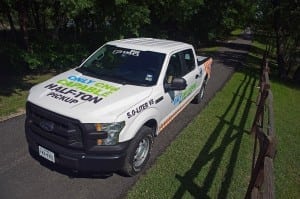 CNG/propane engine prep from the factory costs $315 before the customer chooses a Ford Qualified Vehicle Modifier to supply fuel tanks, fuel lines and unique fuel injectors. Upfits run approximately $7,500 to $9,500 depending on fuel tank capacity.
CNG/propane engine prep from the factory costs $315 before the customer chooses a Ford Qualified Vehicle Modifier to supply fuel tanks, fuel lines and unique fuel injectors. Upfits run approximately $7,500 to $9,500 depending on fuel tank capacity.
Ford says that the demand for natural gas vehicles has risen exponentially since 2010. In 2010, 4,142 units were sold with CNG or propane capability. By 2013, that number had jumped to 14,169 and to well over 16,800 the next year.
“The growth in interest for CNG/propane-prepped vehicles shows a shift in fleet customers’ mindsets,” says Dick Cupka, Ford commercial vehicle sustainability leader. “They are becoming more forward-thinking about alternative fuels, taking into account their total cost of ownership and looking for ways to reduce their vehicle emissions.”
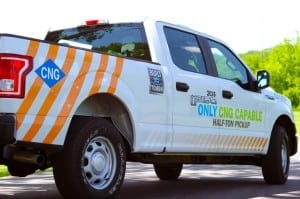 Ford has a qualification system for factory-approved alternative-fuel modifications for upcoming CNG and propane bi-fuel or dedicated fuel trucks. So far, only four companies in the United States meet those standards with their dedicated kits. Two more can do conversions without a dedicated kit, usually for commercial use. In all, 36 locations nationally are capable of making the conversions with factory approval. Ford owners who opt for the conversions retain their truck’s warranty and can still get it serviced at a Ford dealership.
Ford has a qualification system for factory-approved alternative-fuel modifications for upcoming CNG and propane bi-fuel or dedicated fuel trucks. So far, only four companies in the United States meet those standards with their dedicated kits. Two more can do conversions without a dedicated kit, usually for commercial use. In all, 36 locations nationally are capable of making the conversions with factory approval. Ford owners who opt for the conversions retain their truck’s warranty and can still get it serviced at a Ford dealership.


